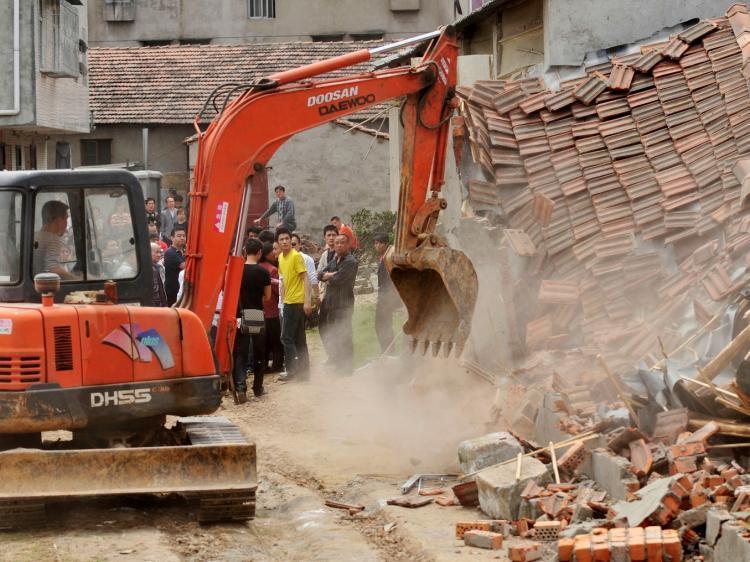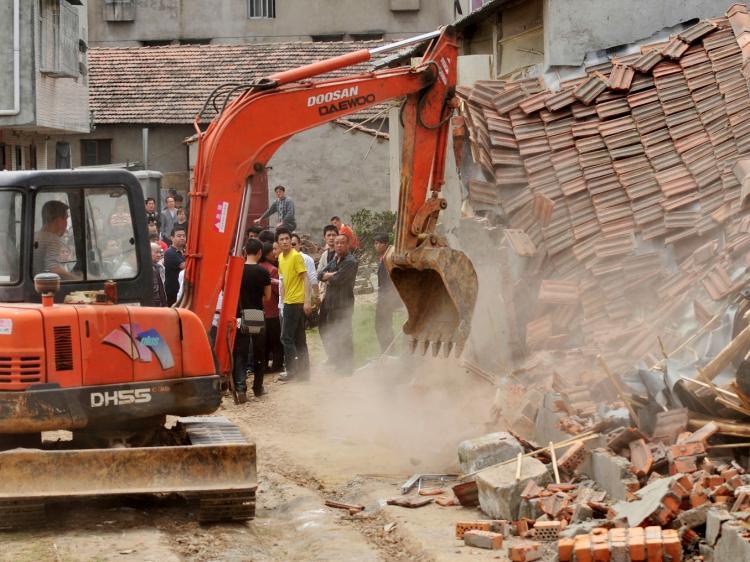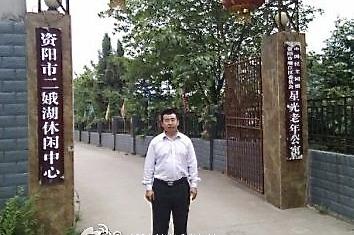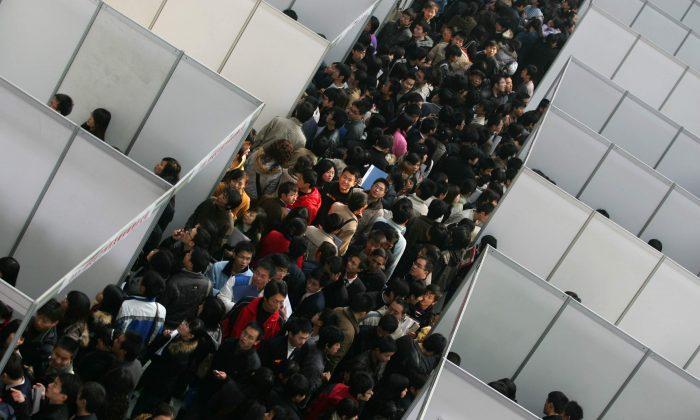The nightmare for Tang Fuzhen, 47, began at 8 a.m. on Nov. 13 last year. She stood on the roof of her 3-story home in Chengdu City, Sichuan Province, in despair, listening to the sound of the anti-theft door being forced open by a government-sponsored demolition team.
A group of helmeted men, armed with shields and steel tubes, rushed in and began beating her family members. The cries of women and children pierced through the roar of the heavy machinery that was demolishing her house. An official’s warning “Don’t work against the government” blared over a loudspeaker from the yard.
Tang struck a cigarette lighter and set herself on fire. Flames immediately engulfed her gasoline-drenched body.
In the three hours since the eviction team had showed up, Tang again and again tried to scare them away. “Go away! We can sit down and negotiate,” she had shouted repeatedly. She doused herself with gasoline several times, yelling “I’ll burn myself!”
But the team still broke into the house and watched Tang burn for 10 minutes before they put out the fire. Her home was torn down, and sixteen days later she died in hospital. Her ex-husband and six other family members were arrested for “violently resisting law enforcement.”
Tang Fuzhen became a household name after media published the story and a video clip of the incident. The public seemed dumbfounded, not just because the situation was so tragic, but also because similar incidents have become so common.
Suicide as a means of resisting forced demolitions has been increasing in recent years: since the Tang incident, at least eight other people have set themselves on fire to protest their homes being razed.
Bloggers have lashed out bitterly at local officials, and have encouraged citizens to violently resist and even take revenge on the regime.
Experts have said that the root cause of the coercive evictions, and their tragic consequences, is a national policy that promotes a near obsessive pursuit of GDP growth.
In a report “Stability Can Be Maintained Only If GDP Ideology Is Eliminated” published in Beijing News on Oct. 7, Beijing University professor Zhang Qianfan said that GDP-driven policies are undermining China’s social stability.
Forced demolition and land exploitation have been the primary cause of petitioning and social unrest because local governments across the country grab land to boost their GDP figures—and their performance is evaluated with those figures.
Under the intense pressure for GDP growth, and as state-owned enterprises fail, local governments have found land sales a source of quick revenue. In 2009, land sale revenue accounted for 4.4 percent of the GDP, according to official statistics. In some cities, up to 60 percent of government income came from land sales.
Soaring housing prices, a result of high land prices set by the government, has given rise to increasing disputes over land and housing compensation. City or suburban dwellers like Tang Fuzhen often find government compensation to be far from enough to purchase a comparable unit in the same area.
It is often worse in rural areas. According to Chinese labor authorities, more than 40 million farmers have lost land to building projects, and have become China’s most impoverished group. Over 60 percent of these farmers are jobless and receive no assistance.
In addition to those whose human rights have been trampled and finances infringed upon, the environment has also become a victim of the pursuit for high GDP growth. Authorities have been lenient to heavy polluters because of their contribution to the GDP, while natural resources have been exploited to support increasing production. The environmental impact has been devastating: According to a World Bank study, 16 of the world’s 20 most polluted cities are in China.
“GDP ideology appears to be emphasizing social development,” Professor Zhang wrote, “but the ill-planned development and power abuse that accompany such ideology are the greatest dangers for social stability.” He urged the authorities to stop evaluating local officials by GDP growth rate.
But many others doubt removing GDP targets at the local level would be enough to turn things around.
“Even if the central government changed its evaluative system for local governments, the trend [of land expropriation] can’t be stopped,” Chinese human rights activist Liu Feiyue told Radio Free Asia (RFA). “In addition to a political motivation, the officials have also rooted their own benefits in real estate businesses.”
China’s GDP Obsession Has Its Flaming Coda
Official land grabs in China satisfy short term economic goals, but often end in tragedy.
By Michelle Yu
10/22/2010
Updated: 10/1/2015






Friends Read Free